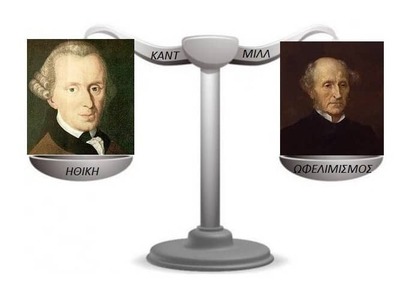Kant vs Mill - Preference and Universality
If you look closely at Mill’s arguments in Utilitarianism, he seems to be making a very strong response to Kant (perhaps against the Groundwork?). Mill accepts the notion of moral duty, just as Kant does. But he insists it derives not from any form of analytic (i.e., Kant’s notion of synthetic a priori) truth. Rather, Mill insists it derives from the apparently universal desire of mankind (individually, in aggregate) to seek its own pleasure. Aware of some of the contextual implications of this principle, Mill attacks head-on the charge of Epicureanism. But what strikes me as interesting, is the fact that, though he makes frequent reference to Kant, he never directly refutes Kant’s position, and never fully explains how the pleasure principle isn’t obviously and soundly refuted already by Kant’s explication of deontology (in the Groundwork). Mill just seems to ignore the problem of subjectivity in the hypothetical imperative, as described by Kant. Perhaps Mill is assuming that the apparently universal preference for pleasure somehow renders the hypothetical imperative a moot point? (i.e., since everyone prefers pleasure, it’s pointless to bother thinking in terms like, ‘if you seek pleasure, then you should do x’).
